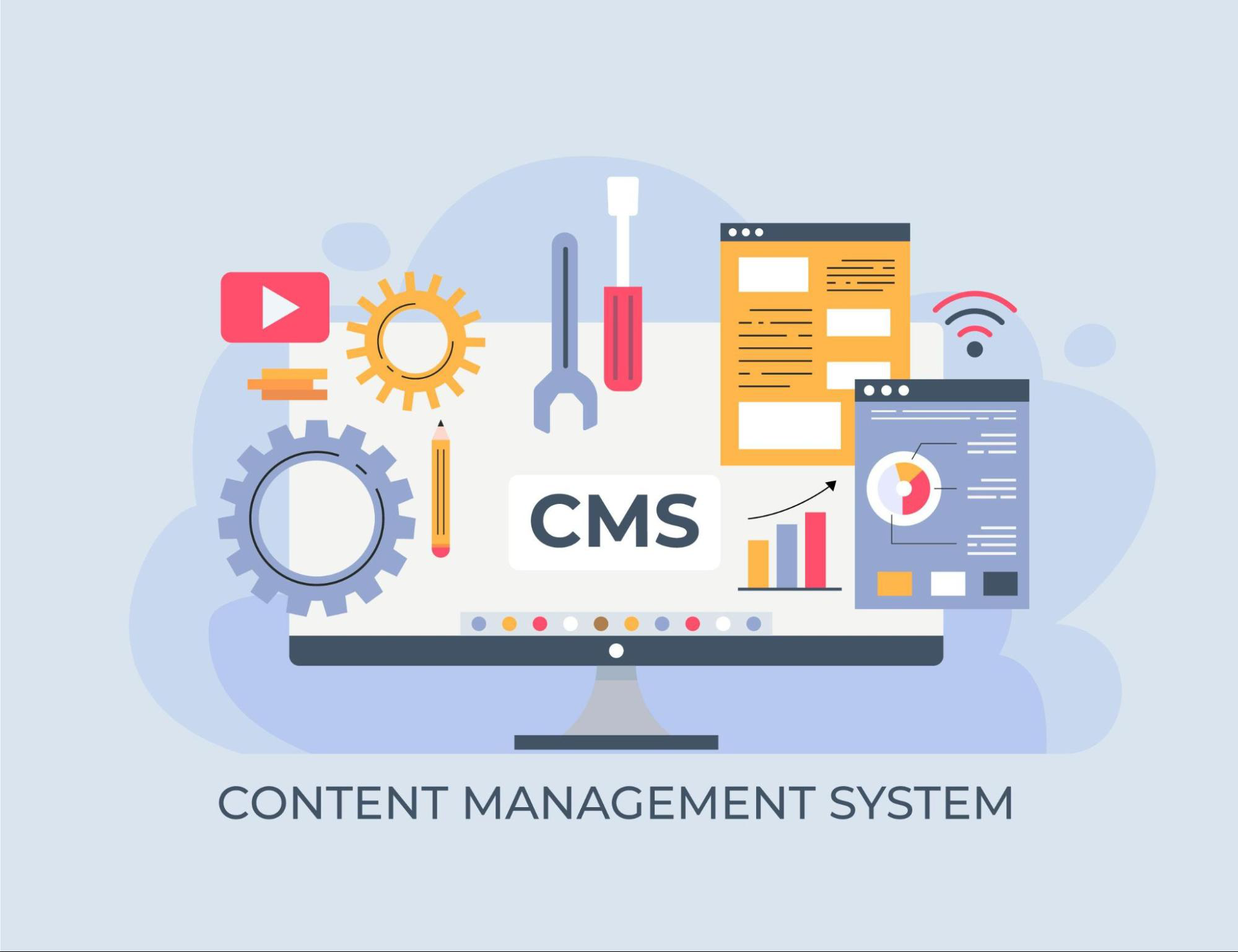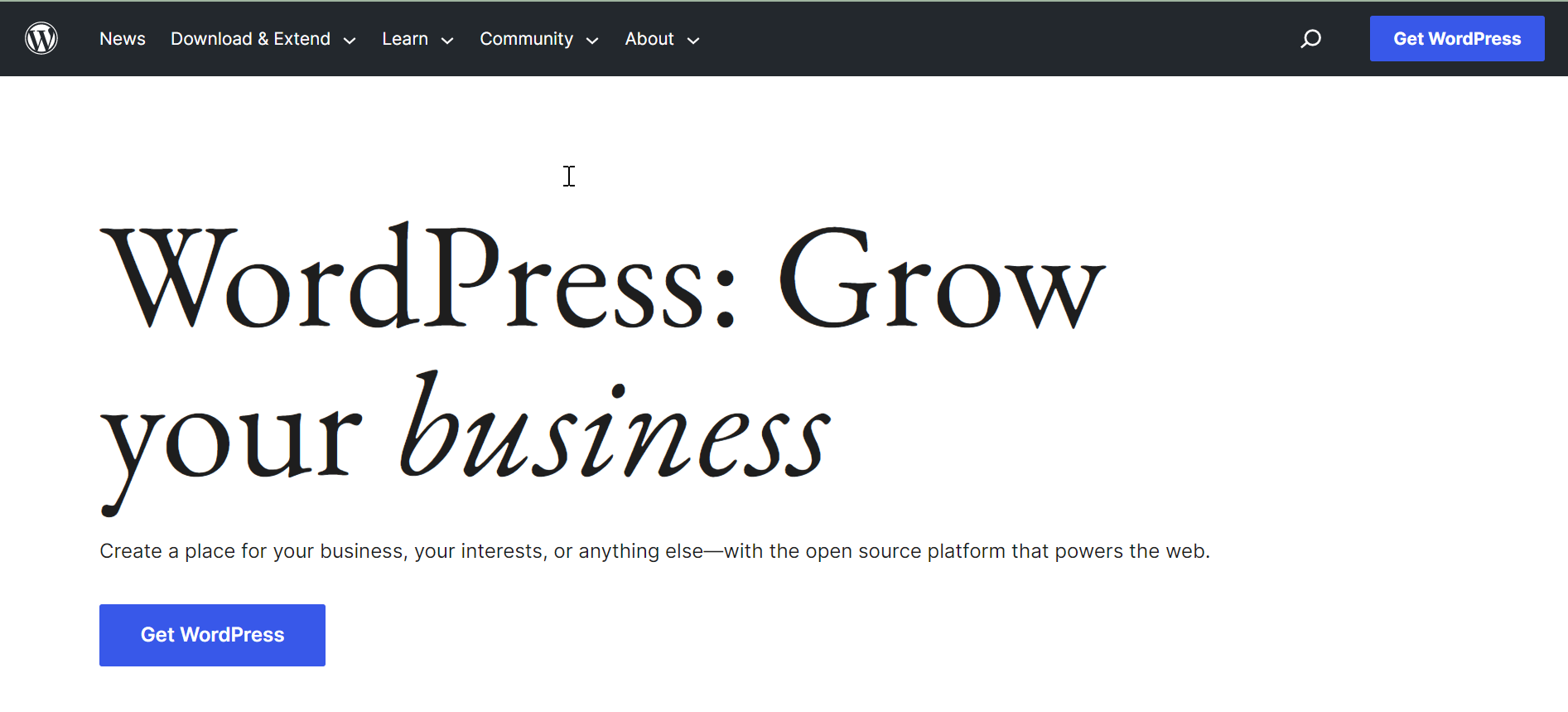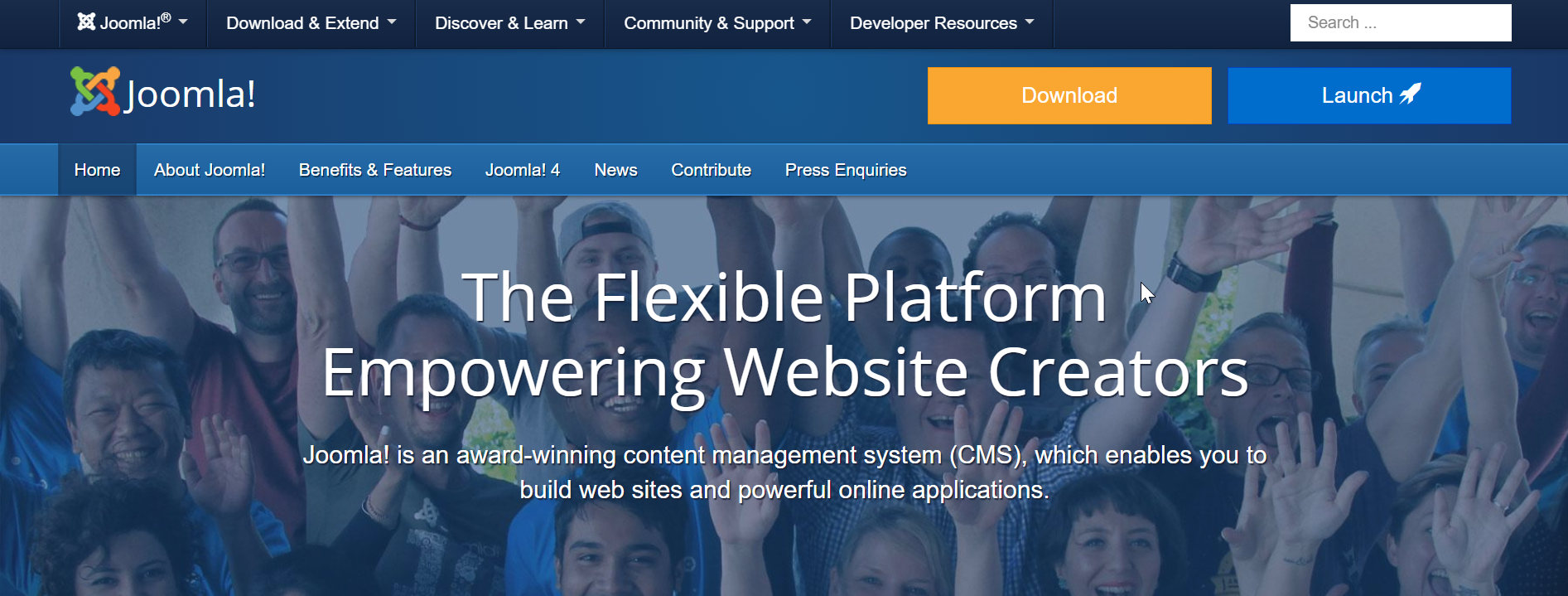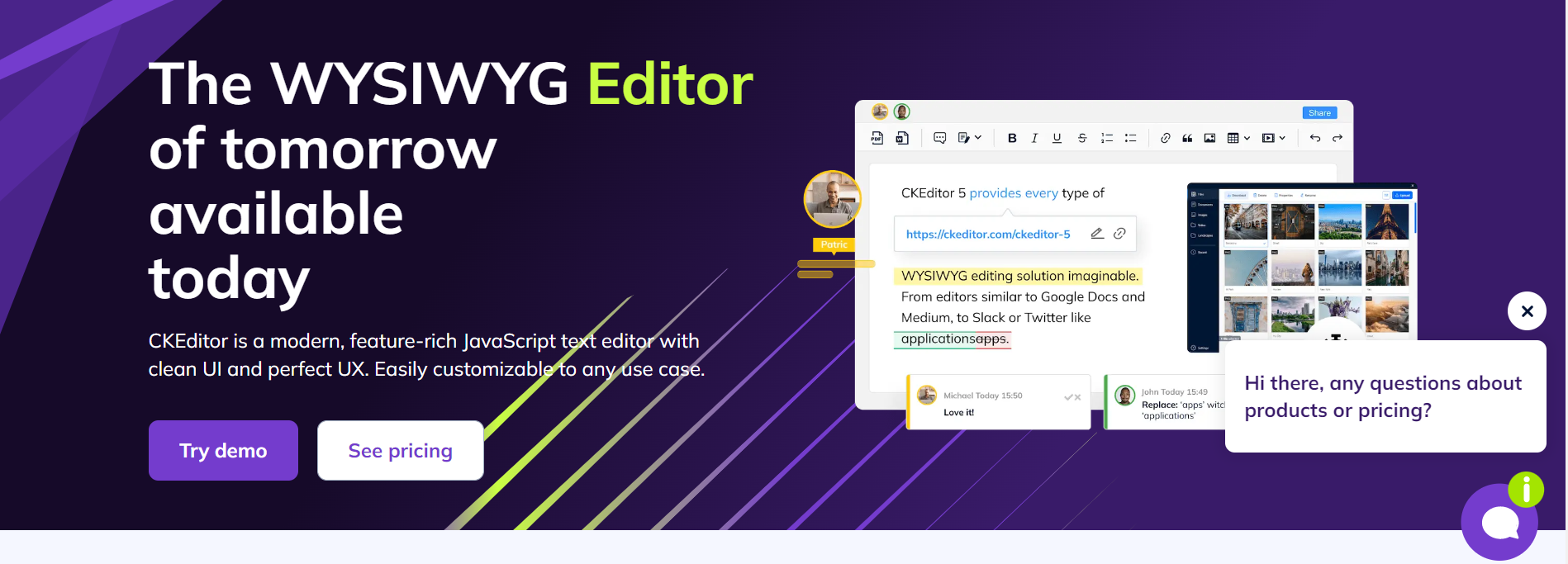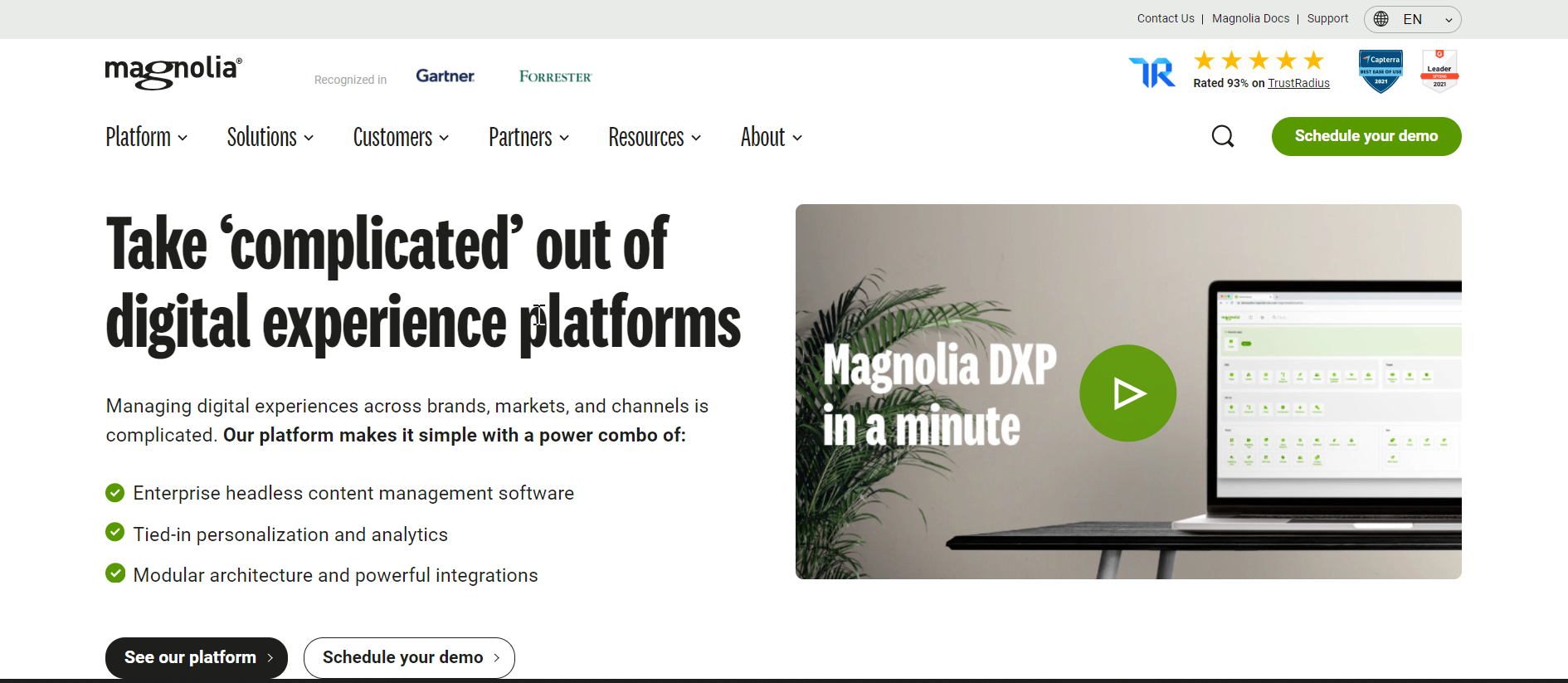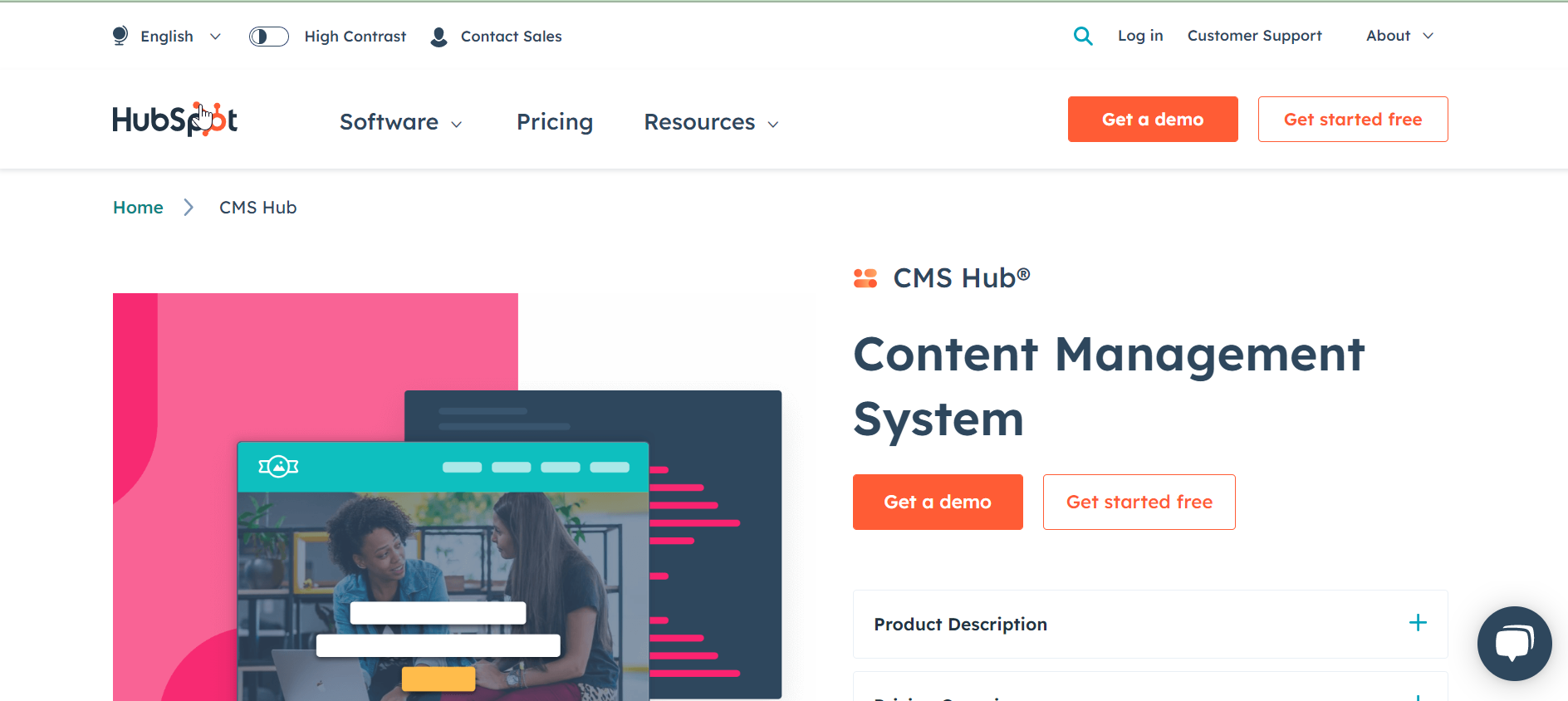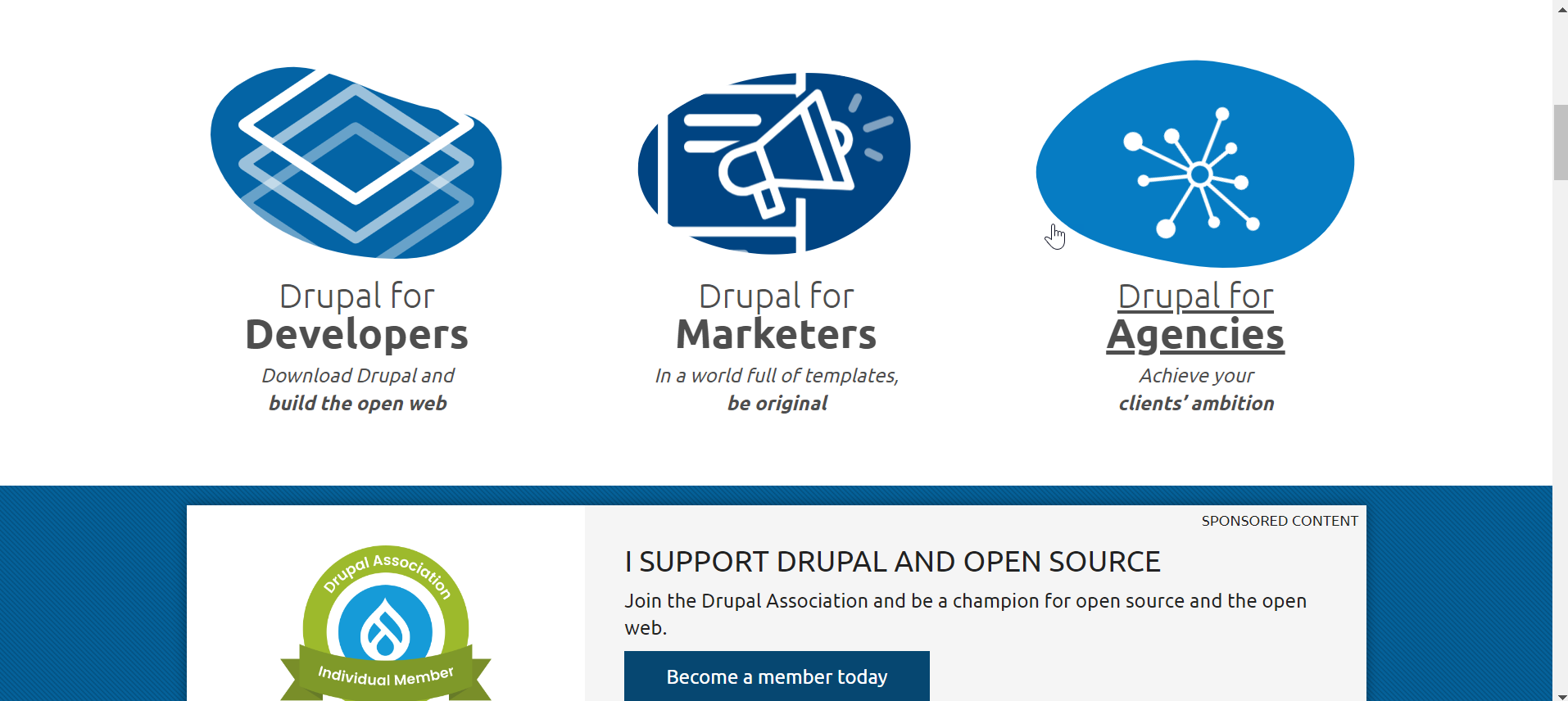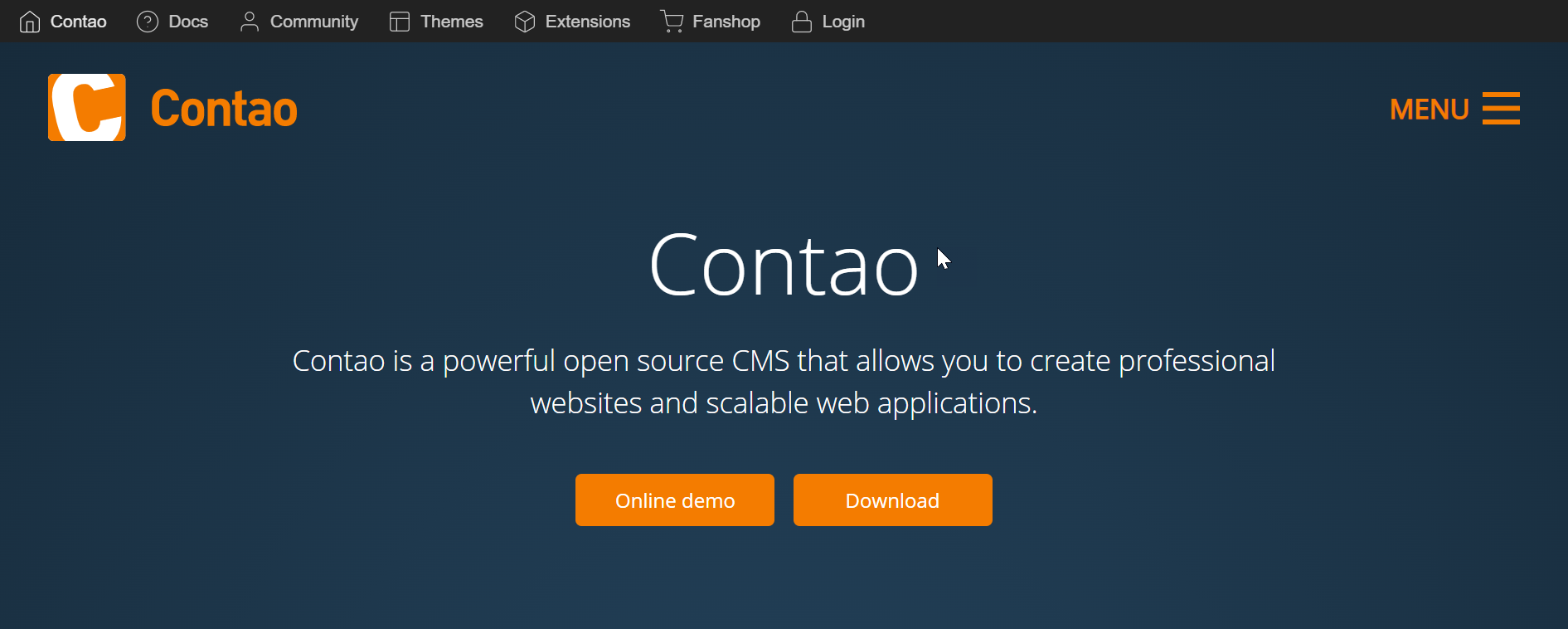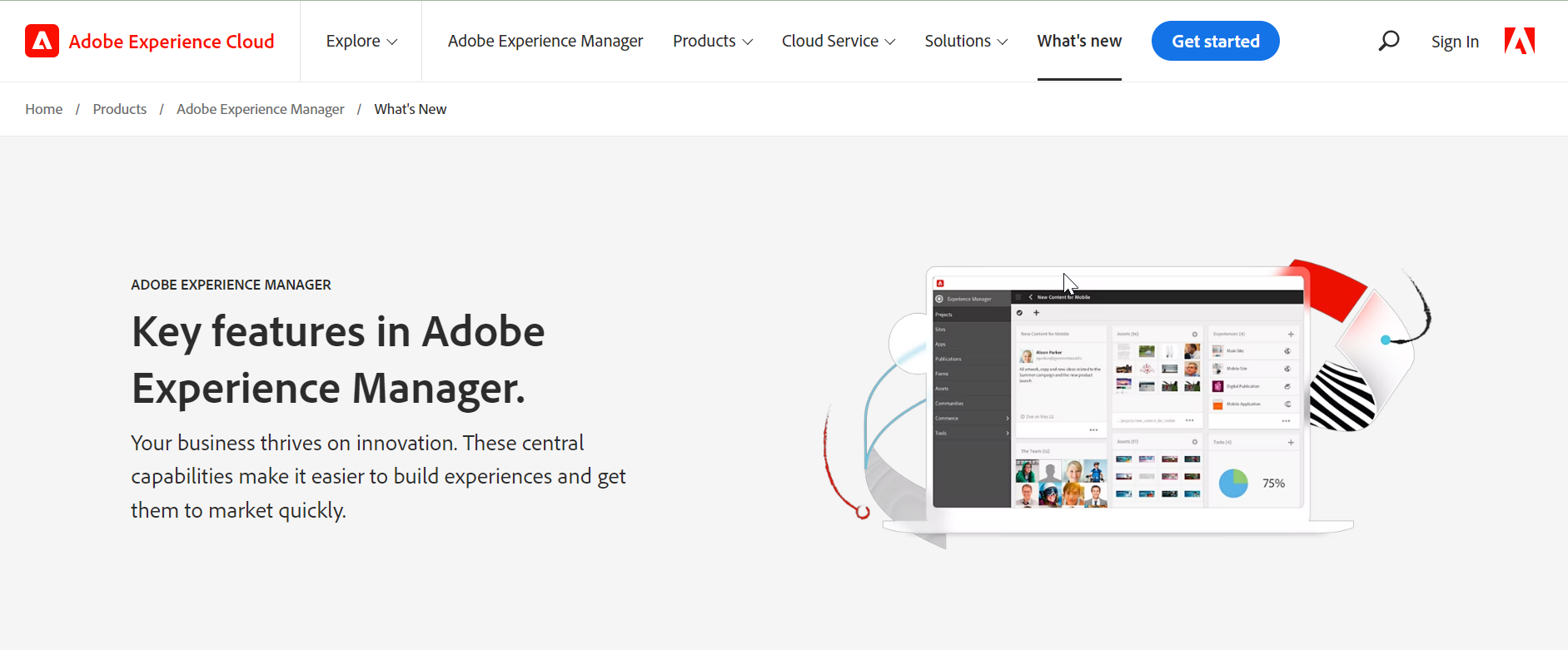Have you been struggling with the constant demands of managing and updating your website’s content? A content management system (CMS) could be the solution you’ve been looking for.
A CMS platform allows you to create, edit, and publish website content without technical expertise.
This article will explain a CMS and introduce you to the seven best CMS for digital marketing in 2023. From simple blogging platforms to feature-rich e-commerce solutions, we’ve got you covered.
Get ready to take control of your website and streamline your digital marketing efforts with the help of a top-notch CMS. With the right CMS, you’ll be able to streamline your content management process and focus on what matters most, growing your business.
Definition of CMS
CMS is a software application for managing content on the web. It allows users to efficiently create, edit, and publish digital content. It is a central hub for managing and organizing website content, such as text, images, videos, and other media.
Non-technical users can update and maintain a website with a CMS through a user-friendly interface. It also often includes features such as version control, search engine optimization, and scheduling and publishing content.
A CMS can be used for various purposes, such as creating and managing a blog, building an e-commerce site, or setting up an online portfolio.
Why a CMS Is Important for Digital Marketing
A content management system (CMS) is an important tool for digital marketing because it allows businesses to easily create, publish, and update website content.
This is crucial in today’s digital landscape, where fresh, relevant content is key to attracting and retaining customers.
A CMS makes it easy for businesses to update their website and interact with their audience through blog posts, social media integration, and other marketing campaigns.
It also enables businesses to track and analyze website traffic, which is essential for understanding and improving marketing efforts. In a nutshell, a CMS is a vital tool for helping businesses succeed in the competitive world of digital marketing.
7 Best CMS for Digital Marketing
Looking to improve your digital marketing efforts but not sure which content management system (CMS) to use? Due to the variety of options available, it can be difficult to determine which CMS best fits your business.
To help narrow down your choices, we’ve compiled a list of the seven best CMS for digital marketing. From user-friendliness to customization options to integration capabilities, these CMS offer a range of features that make them well-suited for digital marketing efforts.
Let’s dive in and see which one is the best fit for your business.
1. WordPress
WordPress is more than just a blogging platform; it’s a powerful content management system (CMS) that has transformed how websites are created and managed.
With its ease of use and endless customization options, it’s no surprise that WordPress powers over 60% of all websites on the internet.
WordPress has the tools and features to support online presence, from small personal blogs to large corporate websites.
Its vast plugin library and active developer community make it the go-to choice for businesses of all sizes looking to create a professional and feature-rich website.
WordPress themes offer a wide variety of design options, making it easy to customize the look and feel of your website to match your brand and aesthetic preferences.
2. Joomla
Joomla is a content management system (CMS) for creating and managing websites. It’s an open-source platform, which means that it’s freely available to download and use, and its code can be modified and customized by users.
One of the main strengths of Joomla is its versatility. You can use it to create a wide range of websites, from simple personal blogs to complex corporate websites.
It also has a large number of extensions and modules available, which can be used to add extra functionality to your site.
Joomla is known for its user-friendly interface and easy content management. It has a built-in WYSIWYG editor, which makes it easy to create and format content, and it offers a range of templates and themes to choose from.
However, it’s important to note that Joomla may require more technical knowledge to set up and customize than other CMS platforms. It may also have a steeper learning curve for users new to website building.
3. Magnolia
Magnolia is a content management system (CMS) designed for enterprises and large organizations. It offers a range of tools and features for managing and publishing content across multiple channels and devices.
It is known for its flexibility. You can use it to create a wide variety of websites, from simple brochure sites to complex, multi-language portals.
It has various built-in features, including support for multiple languages, a customizable content delivery platform, and advanced workflow and collaboration tools.
As a result of its high performance and scalability, Magnolia is widely regarded as a reliable application. It can handle large volumes of content and traffic, making it a good choice for businesses with a lot of content or that expect to grow rapidly.
Magnolia requires more technical skills to set up and manage than other CMS platforms. It may also be more expensive to implement and maintain compared to some open-source alternatives.
4. HubSpot
HubSpot is a popular marketing, sales, and customer service platform that offers a range of tools and features for attracting, engaging, and delighting customers.
It also includes a content management system (CMS) that allows users to create and manage website content, including pages, blog posts, and landing pages.
Using HubSpot’s CMS has many advantages, including tight integration with the rest of the platform. It allows users to easily manage their website and other marketing efforts, such as email campaigns and social media, from a single dashboard.
HubSpot’s CMS also includes a range of templates and design tools, making it easy to create a professional-looking website.
In addition to its content management capabilities, HubSpot’s CMS also includes advanced SEO and analytics tools, which can help businesses improve their online visibility and track their website’s performance.p
5. Drupal
Drupal is a content management system (CMS) designed to build complex, feature-rich websites. It’s an open-source platform, which means that it’s freely available to download and use, and its code can be modified and customized by users.
In addition to its flexibility and extensibility, Drupal also offers many other benefits. It has a large number of modules and plugins available, which can be used to add extra functionality to your website.
It is also known for its strong security features and can be easily scaled to handle large volumes of traffic and content.
Large organizations and enterprises often use it because of its advanced features and tools for managing and publishing content.
It has a powerful permission system, which allows users to control access to different parts of the website and supports multiple languages and content types.
6. Squarespace
Squarespace is a website builder and content management system (CMS) that allows you to create and manage a professional-looking website without coding or design skills.
With Squarespace, you can easily customize your site’s look and feel by choosing from various templates, adding your own content and media, and adjusting the layout and design elements.
Squarespace also offers a range of features for managing and growing your website, including e-commerce capabilities, SEO tools, and integrations with popular services and platforms.
7. Contentful
Contentful is a content management system (CMS) that allows you to create, manage, and publish digital content across various channels and devices. It enables developers and content creators to build and manage their websites, apps, and other digital experiences.
With Contentful, you can create and store your content in a centralized repository and then use the API to access and deliver that content to any channel or device.
The platform includes various features and tools to help you manage and organize your content, including customizable content models, workflows, and collaboration tools.
Additionally, Contentful integrates with various other tools and services, making building and managing your digital experiences easy.
Types of CMS
There are three main types of content management systems (CMS):
1. Open-source CMS
These are CMS platforms that are freely available to use and modify. They are often developed and maintained by a community of volunteers and are typically customizable to fit the user’s needs. Examples include WordPress, Joomla, and Contao.
2. Commercial CMS:
CMS platforms developed and sold by a company. They are often more feature-rich than open-source CMS platforms but may come with a licensing fee. Examples include Adobe Experience Manager and Magento, and Contentful.
3. Custom CMS
These are CMS platforms for a particular organization or business. It is difficult to provide specific examples as they are unique to each company.
They are tailored to meet the user’s unique needs and are often more expensive to develop and maintain than open-source or commercial CMS platforms.
What CMS Can Do For You
Content management systems (CMS) have a variety of functions for managing digital content. A CMS typically includes the following features:
- Content creation: A CMS allows users to create and edit various types of content, such as text, images, videos, and other media. To optimize the effectiveness of your content, you can conduct A/B testing by creating two versions of your article and comparing their performance in terms of engagement and conversion rates.
- Content organization: Content organization features, such as tagging and menu creation, are often found in CMS.
- Content publishing: It allows users to easily publish and schedule content to be displayed on a website or other digital platform.
- User management: Most CMS include tools that let you manage users and their permissions, such as assigning roles and setting access levels.
- Search engine optimization: Some CMS platforms include tools and features for improving a website’s search engine ranking, such as the ability to customize page titles and descriptions.
- Analytics and reporting: Analytics software is available on many CMS platforms and tools to analyze user behavior and track website traffic.
- Integration with other systems: Most CMSs support integration with social media, email marketing, and customer relationship management tools.
Factors to Consider When Choosing a CMS for Your Business
You should consider the following factors when selecting a CMS for your business:
- Functionality: Choose a CMS with the features and functionality you need for your website. For example, if you need to manage large volumes of content, you may want a CMS with strong content organization and management tools.
- User-friendliness: Look for a CMS that is easy to use and navigate, especially if you or your team are not technical experts.
- Customization: Choose a customizable CMS that allows you to design and brand your website to match your business’s style and identity.
- Integration: Consider whether the CMS integrates with other tools and platforms that you use, such as email marketing or customer relationship management systems.
- Support and resources: Look for a CMS with a strong community of users and developers and good documentation and support resources.
- Scalability: Choose a CMS that can grow with your business and handle increasing traffic and content as your website expands.
- Security: Make sure that the CMS you choose has strong security measures to protect your website and users’ data.
Wrapping Up
Content Management Systems (CMS) are essential for digital marketing. They allow businesses to create and manage content on websites easily, quickly, and efficiently.
The seven popular CMS mentioned in this article, WordPress, Joomla, Drupal, Magnolia, HubSpot CMS, Squarespace, and Contentful – all provide robust features that can help businesses create and manage digital content.
With these seven powerful CMSs, businesses will have everything they need to establish an online presence in 2023. By taking advantage of the right CMS for their needs, businesses can stay ahead of the competition and reach their goals in digital marketing.
With the right CMS, businesses can create engaging customer experiences and build a strong digital presence. Using a CMS will help businesses to maximize their digital marketing efforts in 2023 and beyond.

